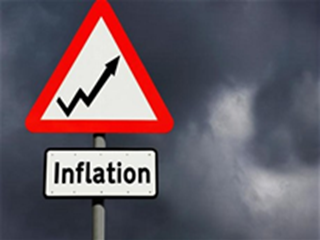
Inflation during September fell slightly to 3.1%, down from 3.2% in August, but with inflation still above the Bank of England’s target of 2.0% the possibility of a base rate rise happening this year remains.
Today’s Consumer Prices Index, which is what inflation is measured by, does not consider the recent fuel crisis and energy price hike, meaning it is likely that inflation will continue to rise in the coming months. To help control rising inflation the Bank of England may decide to increase base rate, which currently stands at a historic low of 0.1%, before the end of this year, with some finance experts suggesting that the Bank of England could increase base rate as early as next month.
Laith Khalaf, head of investment analysis at AJ Bell, suggests that today’s inflation figures may cause the Bank of England to delay increasing base rate. Khalaf said: “The result is the market is now pencilling in an interest rate rise in November, though seeing as only a month ago the Bank’s interest rate committee voted unanimously to keep rates on hold, it could take a bit longer for the requisite number of doves to sheepishly convert into hawks. This latest moderation in inflation will also pour cold water on the case for immediately tighter monetary policy.”
For savers, today’s inflation figures means that still no savings account can match or beat the current rate of inflation, with the top paying savings account paying 2.05% AER on a five year fixed term. This means that savers who deposit money into a savings account will see inflation erode the value of their savings in real time.
If the Bank of England does decide to increase base rate, this could result in savings rates also rising. Rachel Springall, finance expert at Moneyfactscompare.co.uk, urges caution for savers who are relying on an increase in base rate to result in a significant rise in savings rates. She said: “Should the murmurings of a base rate rise before the year-end come to fruition, variable rate deals would typically be the first type of savings accounts to see improvements. However, there is no guarantee for rates to do so immediately and this could even take a few months to flow through, or indeed may not even be passed on in full. Savers sitting on the fence about whether to switch now or wait would be wise to keep in mind there is no certainty that interest rates on savings accounts will rise sharply leading into 2022. Indeed, for many, it was hard to imagine that interest rates could even drop to record lows this year.”
This means long-term savers may have to make a difficult decision whether to put their money into a cash savings account or choose to invest instead. Although investing is a risker option, as returns are not guaranteed and investors risk losing all their money, it can result in higher returns than those that can be gained on cash savings accounts.
Information is correct as of the date of publication (shown at the top of this article). Any products featured may be withdrawn by their provider or changed at any time. Links to third parties on this page are paid for by the third party. You can find out more about the individual products by visiting their site. Moneyfactscompare.co.uk will receive a small payment if you use their services after you click through to their site. All information is subject to change without notice. Please check all terms before making any decisions. This information is intended solely to provide guidance and is not financial advice. Moneyfacts will not be liable for any loss arising from your use or reliance on this information. If you are in any doubt, Moneyfacts recommends you obtain independent financial advice.